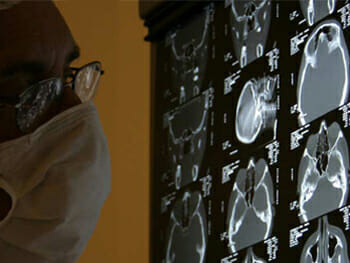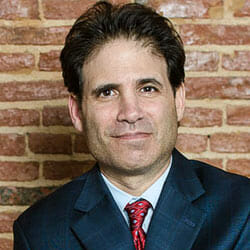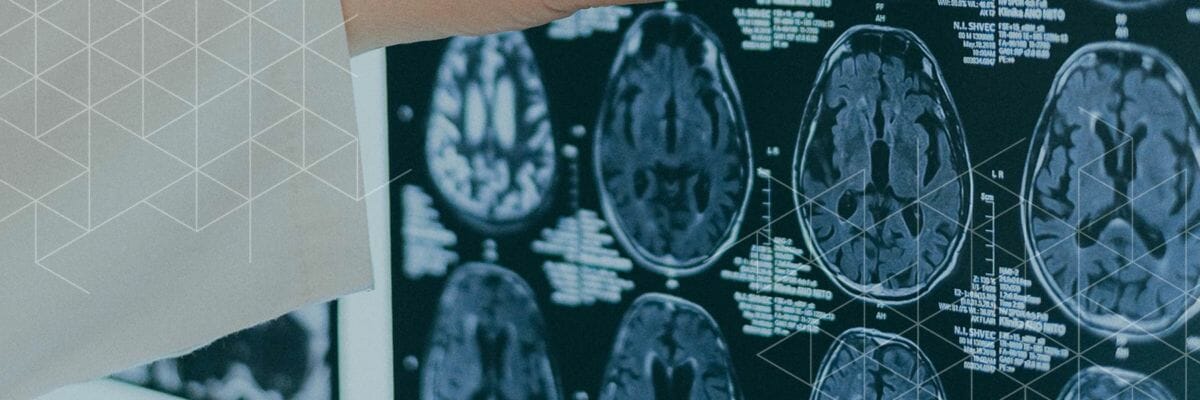Concussions
A little knock on the skull—is it a big deal? A fall means a goose egg on the old noggin—nothing serious, right?
 And yet—the situation might be more grave than you know, because it might be concussion or traumatic brain injury (TBI), fairly common reasons to seek medical help. In the U.S., about 2.5 million visits to emergency rooms in 2010 alone involved TBI, either as a standalone problem or in combination with other injuries. TBI was a contributing factor in more than 50,000 deaths in 2010 and was a diagnosis in more than 280,000 hospitalizations and 2.2 million ER visits. TBI contributes to about 30 percent of all deaths due to injury.
And yet—the situation might be more grave than you know, because it might be concussion or traumatic brain injury (TBI), fairly common reasons to seek medical help. In the U.S., about 2.5 million visits to emergency rooms in 2010 alone involved TBI, either as a standalone problem or in combination with other injuries. TBI was a contributing factor in more than 50,000 deaths in 2010 and was a diagnosis in more than 280,000 hospitalizations and 2.2 million ER visits. TBI contributes to about 30 percent of all deaths due to injury.
Concussions or TBIs can happen for many reasons, and the famous are not immune. Witness Lady Gaga’s concussion after being hit by a pole during a performance, Justin Bieber’s concussion after running into a glass wall, or former NFL quarterback Brett Favre’s memory loss problems that are likely attributable to previous football-related TBIs. Favre’s problems might be due to something known as post-concussive syndrome.
What is a Concussion/TBI?
A concussion is a variety of TBI caused by a fall, a blow, or other occurrence that rattles the brain inside the skull. Normally, the fluid surrounding your brain cushions the organ, but with a sudden, violent hit, your brain can crash into your skull and be hurt.
Such brain injury often has no visible external signs. For example, you don’t necessarily pass out. It can take from a few hours to a few weeks to recover. During your recovery time, your brain is more susceptible to re-injury, so it is important to avoid activities that might aggravate the problem. Repeated concussions can lead to more serious, chronic problems.
The seriousness of a traumatic brain injury can range from mild to severe. Mild TBIs are often called concussions, and thankfully most TBIs diagnosed each year are mild ones. The diagnosis grades are 1, 2, and 3:
- Mild TBIs, or concussions, are Grade 1. Symptoms generally last less than 15 minutes and the person remains conscious.
- Grade 2 TBIs have symptoms lasting longer than 15 minutes with no loss of consciousness.
- With Grade 3 TBIs, consciousness is lost and symptoms linger.
Around 75 percent of TBIs are diagnosed as concussions. Eighty percent of all TBIs seen in an emergency department are treated and released.
Is It a Concussion? Symptoms to Watch For
After a blow to the head, symptoms can be many and varied. Such symptoms are generally grouped into four categories:

- Mental
- Feeling “slow” or not thinking clearly
- Inability to concentrate
- Inability to remember new information.
- Physical
- Headache
- Ringing in ears
- Dizziness
- Blurry vision
- Nausea or vomiting
- Balance problems
- Sensitivity to light or noise
- Emotional
- Easily upset or agitated
- Sadness
- Anxiety or nervousness.
- Sleep
- Sleeping more than usual
- Sleeping less than usual
- Having trouble falling asleep.
In children, symptoms can also include:
- Persistent headache
- Behavioral changes in play
- Behavioral changes in sleeping or eating
- More “upsets” or tantrums
- Crying more than usual
- Lack of interest in favorite things, such as toys
- Trouble waking
- Trouble with balance
- Skills regression, such as loss of toilet training
- Inability to pay attention.
Signs of a More Dangerous Injury
Your brain is a sensitive organ; an injury can have serious and lasting repercussions. While checking with a medical professional is always a good idea after any head injury, seek emergency medical attention immediately if the injured person exhibits any of the following symptoms:
- Convulsions or seizures
- Weakness, numbness, or lack of coordination anywhere in the body
- Slurred speech
- Continuing vomiting or nausea
- Drowsiness or inability to keep the person awake
- Person does not recognize others
- One pupil (black circle in middle of the eye) is larger than the other
- Headache that will not go away, or worsens
- Any loss of consciousness.
Danger signs in children, in addition to the signs listed above, also include:
- Any refusal to nurse or eat
- Child will not stop crying and cannot be consoled.
Common Causes of Concussion or TBI
Many everyday activities and recreations can put us at risk for concussion or TBI. The most common causes of concussions seen in emergency departments include:
- Falls
- Motor vehicle accidents
- Playing sports
- Unintentional blunt force trauma
Additional activities or situations that can result in concussions are:
- Bicycling accidents
- Other recreational accidents, such as at amusement parks or foam pits
- Occupational accidents
- Explosions or other concussive forces (often suffered by those in the military).
Some of these causes of concussion deserve further examination.
Falls
Falls lead to more concussions than any other activity.
Young children who are still learning about balance and coordination are at great risk of concussion. Falls are the number one cause of head injury among children. Keep an eye on the young ones, and don’t allow them to play in situations where they could sustain a nasty head injury, such as from striking the sharp edge of a table or a fireplace. Concussions in the very young can have one unique, unfortunate consequence–the concussion can further impair a child’s ability to maintain balance, and so begins a cycle of imbalance that leads to more falls and injury.
Concussion-causing falls also often occur among the elderly, and unfortunately, concussions are sometimes missed or misdiagnosed because of the symptoms of normal aging. If an older person that you know has recently taken a fall, be alert for symptoms of concussion. Older adults can have a higher risk of complications, such as bleeding on the brain, and this hazard is especially pronounced if they take blood thinners. All those who take blood thinners should see a doctor right away after a fall in which they take a blow to the head, even if they do not have any symptoms.
Some suggestions for preventing falls among older adults are:
- Wearing properly-fitting, sturdy shoes instead of bedroom slippers, flip-flops, and the like
- Reviewing medications with the doctor for side effects that could trigger a fall
- Removing hazards in the home, such as throw rugs, electrical or phone cords stretched across walking areas, and moving low tables out of the way
- Installing safety bars near toilets and in bathtubs and shower
- Putting nonslip treads on bare wooden steps and installing handrails on all stairways lacking them
- Keeping stairways free of clutter
- Increasing the lighting in the home so that it is easier to see and avoid hazards.
Motor Vehicle Accidents
Twenty percent of all brain injury is caused by motor vehicle accidents. But concussion as a result of a car accident is not always obvious. While it can occur because your head strikes something, concussion can also occur as a result of sudden deceleration, and is is often accompanied by whiplash injuries. In such a situation, the sudden snapping of the head can make the brain impact the inside of the skull, resulting in a concussion. If you’re in this region and facing such difficulties, a Baltimore brain injury lawyer along with Baltimore car accident lawyer may provide the necessary legal assistance to navigate through these complex issues and obtain the compensation you deserve.
Playing Sports
Contact sports of all kinds can cause concussions and TBI. By now, we all know about the problems some former NFL players have because of repeated concussions and TBIs while playing for the League. But just one concussion can have effects that last decades, according to research presented at the 2013 Annual Meeting of the American Association for the Advancement of Science (AAAS). And even when a concussion’s symptoms appear to be gone, the brain is still not 100 percent normal.
Concussions are most common in males playing football or ice hockey, and in females playing soccer or basketball. However, concussions can occur in any sport.
The risks to the brain of a young athlete can be enormous. Therefore, as of 2013, new guidelines were released for recognizing and dealing with sports-related concussions. Briefly, the standard is, “When in doubt, sit them out,” or remove the child from play when brain injury is suspected.
The levels of the brain’s chemicals are altered after a concussion, with it taking about a week for the levels to stabilize to normal. But, because the time needed to recover can vary widely, it is essential that athletes not return to play while they are still experiencing signs and symptoms.
Bicycling
Bicycle accidents cause a significant number of concussions. Children should not be allowed to bike without the proper helmet and should be kept away from busy streets. Adults should also always wear the proper helmet and use caution when riding in high-traffic areas. Staying aware of your surroundings is paramount. And, should a bike rider have an accident and strike their head, even if they are not injured, they should have the helmet professionally checked. It may be necessary to buy a new one.
Post-Concussive Syndrome
While many concussed patients fully recover, some can have lingering symptoms that go on for weeks, months, even years. In these cases, it is possible that the patient has developed post-concussive syndrome (PCS).
A large number of patients experience some symptoms of PCS, which are similar to the acute symptoms of concussion. In other words, they will not have neurological damage, but will report headaches, fatigue, dizziness, impaired memory, difficulty concentrating, insomnia, and irritability. Symptoms usually begin a few days after the head injury and persist for months. At one year later, 15 percent will still suffer from PCS.
Risk factors for developing PCS are:
- Being female
- Being elderly
- Having a history of headaches
- Having a history of TBI
- Having a history of depression or anxiety.
One of the best ways to prevent the onset of PCS is to take care of yourself after a concussion so that the symptoms do not become chronic. Follow the medical advice you receive, of course, but it’s also important to do things like get adequate rest. Rest and sleep are critical to helping your brain heal, and a slow return to normal activities is usually advised. It is also wise to avoid alcohol or drugs while you are recovering and to limit physically demanding activities or those which require intense concentration. Under no circumstances should you return to playing a sport or engaging in similar activities until your brain has healed.
Dangers of Multiple Concussions
While post-concussive syndrome is a known consequence of suffering multiple concussions, those who endure more than one nasty head-bang risk more dangers than just chronic symptoms. Research has shown that two or more head injuries in a lifetime, even mild ones, can lead to permanent neurological damage. Additionally, researchers have been studying whether multiple concussions can lead to early-onset Alzheimer’s and Parkinson’s, but so far, the evidence is not 100 percent conclusive.
One deadly hazard of multiple concussions is >second-impact syndrome (SIS). If a person has another concussion before he has recovered from a previous concussion or TBI, SIS can happens within minutes of the newest concussion. SIS causes engorged blood vessels in the brain that lead to a massive increase in intracranial pressure (brain swelling), resulting in severe brain damage or death. Most of the scientific literature that studies cases of SIS, sadly, concerns teens.
How Can “The Injury Lawyer” Help You?
Steven Heisler has been practicing law in Maryland since 1988. In 1996, however, he decided to focus exclusively on personal injury law. Why? Steve has a heart for helping people. He determined that his education and experience could best be put to use advocating for the rights of folks who were harmed through the negligent actions of others.
At the Law Offices of Steven H. Heisler, we know how traumatic a brain injury can be, for both the injured person and for his or her family. In our work to help victims of TBI recover compensation from drunk drivers, careless nursing homes, and negligent employers, we’ve become aware of the complexity of issues surrounding brain injuries in Maryland.
If you or a family member has been the victim of a concussion or TBI personal injury, call Baltimore personal injury attorney Steve Heisler. Keep in mind, however, that there is a statute of limitations – or a time limit – for filing personal injury claims. If you have been injured in an accident or have otherwise incurred a personal injury, you should not delay. Contact the Law Offices of Steven H. Heisler of Baltimore, Maryland, for a free initial consultation by calling (410) 625-4878 today.

Attorney Steve Heisler
Steve Heisler decided in 1996 that he was going to focus his law practice exclusively on injury cases. Since then, he has been representing injured people against insurance companies, disreputable medical practitioners and Big Pharma, and doing it with compassion, honesty and level-headed rationality. [ Attorney Bio ]

